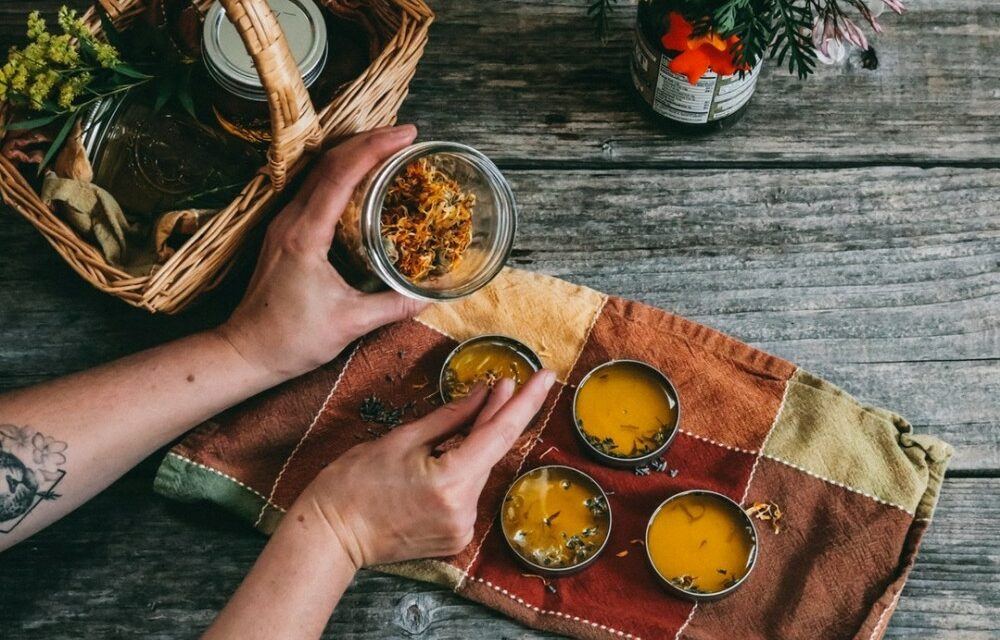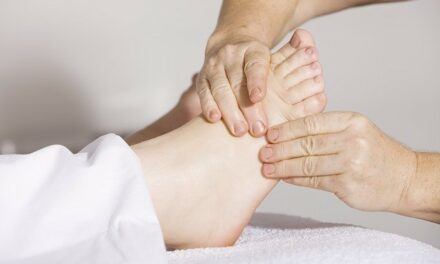Diabetes mellitus is one of the most common noninfectious diseases in the world with plenty of adverse outcomes if not managed it well.
Approximately one out of every ten persons have diabetes according to the world health statistics. International Diabetes Federation’s survey about Diabetes in 2016 has revealed that 415 million people in the world are affected by diabetes, and it may rise to 642 million by the year 2040.
According to the researches, the frequency of Diabetes in urban population is approximately six times greater than the rural community.
The main risk factors for Type 2 Diabetes identified as,
- Sedentary lifestyle
- Decrease exercises
- Changes in diet
- Malnutrition
- Weight gain
- Stress
- High level of inflammation inside the body
- Family history of Diabetes
- History of heart diseases or high blood pressure
- Having hormonal conditions
- Exposed to viruses, toxins and other harmful chemicals.
Type 2 Diabetes occurs due to high blood glucose level, which is resisting to Insulin. Insulin is the hormone secreted by the pancreas in our body. Then these extra glucose starts to excrete via urine resulting in “sweet urine”.
We previously discussed early warning signs of diabetes in adults and children, symptoms of diabetes in men and symptoms of diabetes in women.
The main way of controlling high blood glucose level is various types of medication. But most of the time, there may be some side effects and drug resistance with time. Therefore, most of the people try to find ways to lower the blood sugar other than taking regular medications.
Thankfully, there are ways to prevent, reverse and control diabetes naturally.
Home Remedies to Lower Blood Glucose Level
So today we are going to discuss some home remedies to lower blood glucose level other than medication.
Food Habits
When we talk about the remedies of lowering blood sugar level, the first thing we should consider is our bad food habits.
So, I would like to talk about food habits according to three topics, as mention below.
- I. Foods that we should stop eating or reduce intake
- II. Foods we should incorporate into our diets
- III. Supplements that help to lower blood glucose level
Foods that we should Stop Eating or Reduce Intake
1. Carbohydrates
Carbohydrates are the most critical material that diabetes people should stay away from and control.
Carbohydrates directly break down into sugar and increase blood sugar level.
The American Diabetes Association recommends reducing carbohydrate intake by introducing substitutable food to your diet.
2. Refined Sugar
Refined sugar is worse than carbohydrates. It rapidly spikes blood glucose level.
Refine sugar mainly contain in soda, chocolates and other sugary beverages.
The better option is to use a substitute for refined sugar like raw honey.
3. Cow’s milk
Conventional cow’s milk can stimulate the immune system and trigger an immune reaction. That will cause increase blood sugar level.
However, if you can introduce goat or sheep milk instead, that will help to balance the blood sugar level.
4. Grains
Gluten-containing grains can cause inflammation inside the gastrointestinal system. It effects on hormones like Cortisol and leads to a sudden increase in blood sugar level.
In addition, the gluten contained in wheat has a large number of carbohydrates, which could easily cause an episode of increased blood glucose level.
5. Alcohol
Research confirms that there is a 43% increased incidence of diabetes among heavy alcohol consumers.
Alcohol increases the blood sugar level, and we should not forget that it also leads to liver toxicity.
6. Hydrogenated oils
One of the most hazardous items to use when you are cooking food is hydrogenated oils. They include peanut oil, corn oil and cottonseed oil.
They affect not only your blood glucose level but can cause so many other health issues in your body.
One of the reasons for their harmful effect is because these oils were treated at very high temperatures, and multiple dyes and bleaching agents are added during manufacturing.
Foods we should incorporate into our diets
Make sure you add some particular types of foods to your diet, which may help to control the blood glucose level.
1. High fibre diet
High fibre diet helps to lower the glucose absorption. It regulates the blood glucose level and contributes to detoxification.
The daily requirement of fibre is 30 grams. We can easily fulfill that requirement by eating vegetables, fruits, seeds and nuts.
2. Healthy fat
Healthy fat contains in coconut oil, butter, ghee and red palm oil. Medium chain fatty acids in those foods help to balance the blood sugar level.
3. Fish oil
The main component in fish oil is omega 3 fatty acids. It helps to improve the functionality of Insulin, reduce inflammation, and reduce insulin resistance.
Daily recommended dose is 1,000mg.
4. Aloe Vera
Aloe Vera has anti-inflammatory properties, and those anti-inflammatory properties help to control blood sugar level too.
5. Proteins
Protein-rich foods do not influence glucose level in the blood, but they help to reduce the absorption of sugar from other foods. For example, from carbohydrates.
6. Fruits
Except for watermelon and pineapple, most of the other fruits contain plenty of water and fibre with a low level of fructose (a type of sugar).
Research findings suggest that fruits consumption decrease the risk of developing type 2 diabetes. But on the other hand, consumption of fruit juice increases the risk of developing diabetes due to the destruction of fibre during processing.
Supplements that help to reduce blood glucose level
1. Chromium
This supplement helps in glycaemic control, reduce hypoglycaemia and hyperinsulinemia.
The recommended dose is 200 micro grams thrice daily.
Foods that contain Chromium are egg yolk, coffee, nuts, meat, green beans, cereals, etc.
2. Magnesium
Many researchers provide evidence for reasonable blood sugar control in people who consume magnesium-rich foods like yogurt, almond and spinach.
Magnesium deficiency reduces insulin secretion from the pancreas and increases insulin resistance.
Lack of Magnesium in your diet easily could lead to complications of diabetes.
3. Vanadium
Vanadium is believed to help to increase the insulin sensitivity of cells.
But still, given Vanadium is a novel substance, researchers know very less about if it causes any side effects and the ideal dose we should intake.
5. Vitamin C
Daily intake of 600mg of vitamin C improves blood sugar level. And, it is a well-known ‘secret’ that vitamin C boosts the immune system.
Another good news about Vitamin C that it is a substance entirely excreted by kidneys and the side effects of vitamin C overdose is closer to zero.
6. Co enzyme Q
It is a vitamin-like substance which mainly found in meat and seafood.
Even though it is believed to help to control blood sugar level in people with diabetes, research is yet underway to prove it.
Herbs
There are a number of favorite herbs that could help with diabetes control and progression. I am sure you are familiar with most of them.
1. Ginseng
It has a sugar lowering effect. But no much research studies to support that with statistically significant results.
2. Cinnamon
Cinnamon is a known stimulator of insulin activity.
Cinnamon improves body sensitivity to Insulin. It contains bio active compounds that involve in the fight against diabetes.
It helps to lower the blood glucose level, and also the LDL cholesterol and triglyceride levels too.
We already know that there is a close relationship between diabetes and high cholesterol.
3. Bitter melon extract
Bitter melon helps to regulate insulin level and reduce blood sugar level too. It can also reduce symptoms of diabetes; minimize insulin resistance, and provide so many other health benefits.
4. Ginger
Ginger is more often used in preparing foods.
However, did you know that it helps to reduce inflammatory issues in the digestive system? In addition, recent research suggests that ginger has blood sugar lowering effect too.
5. Berberine
For many years, Berberine is mainly being used by Chinese people to control the blood sugar level. It helps with the breakdown carbohydrates in our diet.
The exact sugar lowering mechanism of Berberine is still unknown, but the effects are proven.
Saying so, doctors concern that it may cause some side effects such as diarrhea, constipation and abdominal distention.
Remember, herbs are used to control blood sugar level for ages. Ancient people got to know it by their traditions and experience.
In addition to the above benefits of herbs specific to each of them, overall, there are many other advantages of using herbs, which include:
- ü Their adverse effects are minimal compared to drugs (chemicals)
- ü They are cheap
- ü They are ‘Green’ and Eco-friendly
Regular exercises
Overweight is a crucial risk factor for type 2 diabetes because it increases resistance to insulin by body cells. So, the normal process of sugar taken into cells will not happen properly, resulting in high blood sugar level.
Regular exercises help to reduce weight and stimulate the insulin sensitivity of cells in our body.
Another advantage of exercises is it increases the demand for glucose in muscles when as we exercise. More demand helps our body to burn more glucose.
All kind of physical activities like Zumba, aerobics, dancing and sports help to control blood glucose level. Walking, swimming and cycling are other recommended ways of exercise for any person.
If you remember, we have written an article worth of resources on best workouts for people with diabetes, previously. Just follow the link.
Not only for control sugar but exercises also helps to lower blood pressure, reduce harmful cholesterol levels (LDL, TG), increase healthy cholesterol levels (HDL), reduce anxiety, and with strengthening muscles and improving stamina too.
The main stimulus for blood sugar control by including exercise schedule in your routine can be summarized as:
- Lower HbA1C
- Lower insulin resistance
- Increase in glucose utilization
Do you know what HbA1C is?

Some tips to consider when you add exercises to your routine.
- Better to do one to three hours after eating, but not just after a meal.
- Check blood sugar level before start exercises, especially if you are on medications for high blood glucose levels. If the sugar level is less than 100mg/dL better to be cautious.
More tips are in the article about the best diabetic friendly exercises.
Drinking water and stay hydrated
Water is the best drink for people with diabetes, as it does not contain sugar or calories.
Also, remember, drinking water can help you to control blood sugar level.
People with high blood sugar level requires more water to flush out excess sugar molecules in the blood via urine. If you do not drink enough water, that will lead to dehydration easily. Therefore, you need to drink more water than the average person.
According to the European Food Safety Authority, the recommended water intake per day for an average person is as below,
For female -1.6 liters
For male – 2 liters
Control and manage stress levels
Stress can be two types, physical stress and mental stress.
We all know what physical stresses are like, so let’s focus on the psychological stresses, which I am refereeing here.
Most of the people nowadays have various types of psychological stresses due to:
- Workplace pressure
- Marriage or relationship problems
- Problems due to children
- Financial issues
- Social issues
- Health problems, and
- Many more
With any kind of stress, our body starts to secrete and release stress hormones to the bloodstream, namely Cortisol and Glucagon.
High level of cortisol can lead to diseases like Cushing’s syndrome, one of the leading causing factors for diabetes.
Both Cortisol and Glucagon hormones increase the level of glucose in the blood. The result is fluctuating blood glucose level.
When there is stress, the Adrenal Hormone also secretes increasingly from our body.
All those three hormones help to maintain a high sugar level in blood. Their effect could reduce the sensitivity of muscles for insulin.
If you are diagnosed
with diabetes, and if your life stresses are high, you need to check your blood sugar levels more regularly and review medications accordingly.
In such circumstances, regular HbA1C testing is also recommended.
Get quality sleep
Not only people with diabetes, but also all we humans should get a good sleep for better health.
However, sadly, sleep deprivation is common among people with diabetes. This is because when the glucose level in blood is high, the body tries to excrete the glucose via urine. More urination means diabetic people have to wake up over the night to pass urine.
Also, due to poor sleep and lack of rest, the cortisol level in the blood goes up. Cortisol mobilizes glucose deposits in the liver and adds it to blood. That could lead to higher blood glucose level, and it is a vicious cycle.
Not only that, poor sleeping habits reduce insulin sensitivity, increase appetite and increase weight gain.
There is also a connection between diabetes and sleep apnoea. (A sleeping disorder associated with snoring) The main reason for that is fat deposition in the upper airway, which obstructs the passage of air.
Sleep apnoea is another common cause of poor sleep among people with diabetes.
Remember, the recommended duration of sleep is seven and a half hours every night. But it can be varied according to genetics, your age, other illnesses and capacity of your body. Best to have a chat with your doctor.
Improve lifestyle
In the modern is designed encouragingly setting us to run after more work and money. We have to compete with each other to achieve our goals. All these lead to pop-up negative thoughts inside our mind.
This is an awful situation where we collect all the negative thoughts but do not do anything to cleanse from our minds. Not only people with diabetes but none of us get a moment to breathe, feel relaxed and think about ourselves.
This glamorous sedentary lifestyle makes us sick.
To live healthy and long, we should find a time to enjoy life, enjoy nature, enjoy music, drama or movies or enjoy whatever the things we can do to relax our minds.
Avoid smoking. Have alcohol in moderation, but not daily or weekly. Those lifestyle changes could help your battle with blood sugar control dramatically.
Remember, smoking causes many other health problems like heart and kidney diseases, reduced blood flow to legs, feet, eyes and peripheral parts of the body. Not to forget, the cancers.
So, if you have diabetes and you smoke, I think diabetes would be the least to worry about in the list of disease you would come across in your lifetime. Sorry if you think I am ‘harsh’, but, sadly, that the reality.
Similarly, if you are on diabetic medications and consume alcohol regularly, that may drop your blood sugar level to dangerous levels. It is because of the liver over function to remove alcohol from the blood instead of regulating your blood sugar level.
Conclusion
Most of the above details are written based on evidence and experience in managing diabetes.
Although there are many remedies mentioned here, you need to be careful when introducing them to your body systems so please take your doctor’s advice before making changes to your routine or lifestyle. Also, you should clarify any possible interactions of those remedies with your ongoing medications.
Remember, it is not recommended stopping usual medications without your doctor’s advice and entirely rely on these methods. The above remedies should come as complimentary.
Tip: Stay away from negative thoughts, spend time with nature, go to bed early and wake up early. I am sure any doctor will agree with me in that case.
References










Thanks for sharing your post. Natural tea contains various herbs and spices which is ideal for diabetics, prediabetics and health conscious individuals who want to adopt a low glycemic index diet. Diabliss Natural tea is one of the few tea brands that are diabetic friendly which proven to control blood sugar levels. This Natural tea doesn’t feel like a compromise – it feels like an indulgence!
This post is very helpful and can spread awareness about diabetes.
As the research proved that the rate of diabetes in urban area are much higher than the rural area.
It means that people living in urban area are more exposed to the unhealthy lifestyle, not proper diet, etc.
The most effective and proven way to prevent diabetes is getting involve in regular exercise or any physical activities.
Dear Joemer,
Thanks for your comment and we can not agree more.
We all know sedentary lifestyle is cases of many diseases, but yet the society and financial burden do not allow most people to focus on health, but the rat race. This is a known unfortunate situation, of which most of us are a victim of.
Remember, it is crucial to use diabetes-friendly footwear when you exercise.
We are glad that you found the article useful.
Best wishes and happy reading.
It is important to provide detailed and relevant information on this subject matter. I agree there are much daily health and dietary habits have a direct link to diabetes type 2.
Having seen type 2 diabetes in my grandmother and the impact it can have on her, this is a topic of interest for me. She is having a condition called nerve leg pain due to diabetes.
Can massaging help this condition? If so, I am can buy a massager for her 79th b’ day in September.
Hi Shane,
Thanks for sharing your grandmom’s experience with Type 2 Diabetes.
Massage could help nerve pain. Everything you need to know about diabetes leg pain and remedies is a previous article. Just follow the link.
We have thoughts on a couple of popular massagers are below.
Thumper Massager
Human Touch Foot and Calf Massager
Happy exploring!